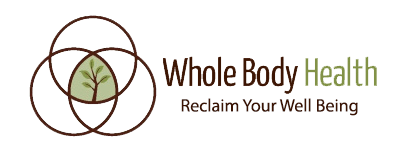Decrease Neck Pain, Reduce Stress & Lower Blood Pressure with Deep Breathing Exercises
Anytime someone says, “I carry all of my stress in my shoulders,” what I hear them saying is, “I shallow breathe frequently!” or “my posture really stinks and I shallow breathe frequently!”.
Deep breathing exercises can reduce stress, lower blood pressure and help in neck pain relief. Breathing exercises can be done lying down, seated or standing (we recommend practicing in the lying position at first). Shallow breathing can lead to neck pain, jaw pain, shoulder pain, headaches, shoulder blade pain, and indigestion/hiatal hernia. Shallow breathing, or breath holding, causes the muscles in the front of the neck, the scalene muscles, to become overworked. This pattern of dysfunctional breathing coupled with poor posture frequently leads to overcompensation in other muscles of the neck and shoulders. The pain pattern for the scalene muscles may be felt in the shoulder and even down the arm to the hand. Chest breathing can cause an increase in blood pressure and decrease the volume of air in the lungs causing the neck muscles to work extra to lift the ribcage (not what they were designed to do).
The muscles involved with poor breathing techniques are the scalene muscles. These muscles are in front of the neck and attach the neck to the upper rib cage. The “X” is the trigger point in the muscle, cause of the pain, and the red areas are where pain, tingling or numbness typically result.
Deep breathing is also known as “diaphragmatic” or belly breathing. When you breathe properly, using your diaphragm, oxygen is able to reach all parts of your lungs and more oxygen can then get into your bloodstream. More oxygen in your body provides improved energy and health. If you watch children play you will notice that they breathe with their diaphragms, instinctively. Many adults, on the other hand appear to breathe with their shoulders. A deep breath for many of us involves bring the shoulders up around the ears and tensing the abdomen. This is exactly opposite to what you want to do if your trying to relaxes your body. Shoulder breathing not only promotes shoulder muscle tension, it also prevents air from getting to the bases of the lungs resulting in less efficient breathing.The art of deep breathing is rather simple. Begin by lying on your back in a quiet room. Place your hand on your solar plexus just below your rib cage and feel your abdomen rise and fall while you breathe. It should rise up as you breathe in and fall as you breathe out. Now try a deep breath, always keeping the same pattern. Breathe in through your nose for a count of four seconds, hold your breathing for four seconds and exhale through your mouth for a count of four seconds.
Once this technique has been mastered in the lying position, it can be performed throughout the day while sitting, standing and walking. A deep breathing session is like a miniature time out which allows the mind to slow down and the body to relax by decreasing any unhealthy stress response the body is experiencing.
Our bodies are naturally designed to breathe deeply, however, throughout life we develop a habit of shallow breathing associated with poor posture and/or the fight or flight response that is constantly being triggered by our being plugged into the world of technology, overwork and other stressors. We must re-learn proper breathing habits through diaphragmatic breathing exercises. I have observed poor breathing habits in 90+% of our patients and it standard practice to teach deep breathing exercises, to not only decrease the stress on the neck, but on the entire body. The results are often dramatic.
At first, you may have difficulty coordinating your deep breathing muscles properly, but with some practice diaphragmatic breathing can become natural. The first step to breathing deeply in your normal routine is to catch yourself shallow breathing or holding your breath! Anytime you are running To-Do lists through your head, worrying, feeling overwhelmed or experiencing neck pain, stress (mental, physical or both) or anxiety, you are almost always shallow breathing.

